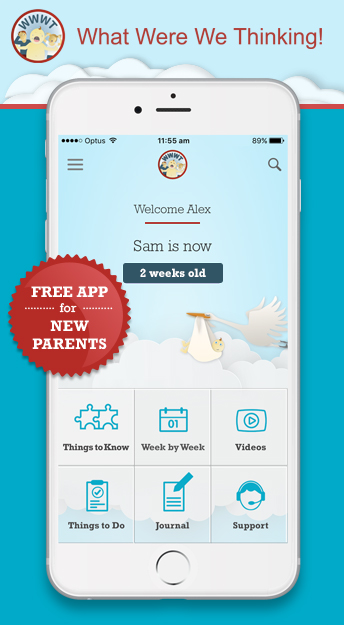It will only take five minutes ...
By Alice
Daily life is riddled with 500 five-minute jobs, all required to survive the day and most, routinely boring. As much as I accept that it's a moment in time, the three loads of daily washing (we live on a farm) preparing, providing and cleaning up three meals plus morning and afternoon tea lose their glamour when you also have to feed the lamb, collect the wood, navigate a path through the toddler rubble and remember to breast feed the baby ... oh and attend to the daily farm job of feeding the calves! Anything outside that, like a trip to town for an appointment, is four hours less that you have.
When the house is cold because the fire has gone out, when there are so few clothes in the drawers because three days worth of clean laundry is yet to be folded and when you're limp from a piece of Lego that has impaled itself in your foot (and the baby and lamb are bleating at you for a meal), it's difficult to see the forest for the trees. It's the organised chaos of each day, including worrying if my three year olds are safe outside while I breastfeed, that leaves the strategic, creative and innovative side of my brain untouched.
There are too many trees. Where is the forest?!
As I read into stroke recovery, following my dad’s stroke a year and a half ago, I learned that the brain can create new pathways for learning the same task - it just takes practice. So although the majority of my brain is absorbed in taking care of infants, the time will come when I will have a moment to be creative and my brain will re-learn how to do so. It won't, as I had previously thought, fall out of my ear as I sleep because my brain has shrunk from lack of use. And with this creative brain, I will be able to incorporate the twins to help collect the wood.
Each of us are pushing a wheelbarrow back with sticks and logs, with big grunts of how "heaby" (heavy) the sticks are. The picking up of Lego becomes a race because the bedtime story is about to start. And little arms that lurch at your neck for a cuddle and a, "tiss (kiss) Mummy, just ONE more tiss," dust off the day’s prickles. Such moments are to be cherished, as they are the rewards for the daily grind ... it's remembering to embrace them rather than overshadowing them by 499 other jobs.
Expert response from What Were We Thinking! expert, Ann O'Doherty
Hi Alice,
Thanks for your post. Through your writing your instincts around parenting excellence and your creativity really shine through. You face numerous challenges with resilience and humour and offer lovely ideas around getting your 3 year old twins involved in everyday tasks. You also show an insightful appreciation of some heart warming gems of parenting by sharing your wish to “remember to embrace cherished moments."
These gems of parenting (little arms reaching up to you, cuddles and your children’s unconditional love, trust and acceptance) are, as you say, a parent’s reward for the continuous hard work and self sacrifice parenting entails as parents prioritise the family needs above their own.
Routines can be helpful, especially at those incredibly busy times at the end of the day around dinner and bedtime. Routines make children feel safe and secure and can help reduce some parental stress, especially if jobs are shared. You mention one of your family rituals (bed time reading after packing up toys) and these rituals give children a powerful sense of belonging, as does your inclusion of the twins in some household tasks - like bringing in the wood. Sharing tasks together make children feel valued and important to the family and help them to develop social skills for life.
Your work load, as it is with many parents, is very heavy. Parenting takes enormous amounts of energy and continuous commitment and this is why being mindful of your own health and well being is so important. Many women say they find it very difficult to ask for help and feel that they should be able to manage everything on their own. What is true though is that every one of us needs help at some time.
With 3 young children (and a farm) there will always be more chores to do. Prioritising of tasks may help as will going easy on your expectations of yourself. There are times when all of us need some practical support and some of us will need emotional help as well. Talking openly to family and friends can help to identify sources of help and discussing how you are feeling with a health professional (if things are starting to overwhelm you) can point you in the right direction of useful strategies and support groups.
Regards,
Ann
Posted in: A new reality Every baby is different In this together









